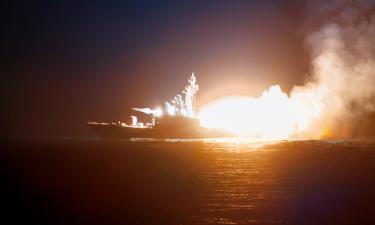U.S., Europe ready to accept nuclear activities by Iran
The United States and Europe have tentatively agreed on a plan to accept expanded nuclear activities by Iran, but only if the enrichment process is moved to Russia, senior officials and diplomats said Thursday. If accepted by Iran, the compromise proposal could end a tug-of-war over whether to refer the Islamic republic to the U.N. Security Council that pits Washington and the Europeans against Moscow and Beijing.
The officials and diplomats, who demanded anonymity in exchange for discussing the strategy, said the plan would allow Iran to continue converting raw uranium into the gas that is spun by centrifuges into enriched uranium without international sanctions. But actual enrichment would take place in Russia, they told The Associated Press.
In August, Iran resumed uranium conversion. That prompted Britain, France and Germany to break off talks with Tehran meant to dispel fears about its nuclear agenda. It also led a September meeting of the International Atomic Energy Agency's 35-nation board to approve a resolution clearing the path for Iran's referral to the U.N. Security Council at a Nov. 24 board session.
The IAEA is probing nearly 18 years of covert Iranian nuclear activities, including experiments that could be used in weapons development, which were revealed more than three years ago. It recently agreed to accelerate cooperation with IAEA inspectors to blunt the threat of Security Council action.
Publicly, both the Americans and the three European nations representing the EU in the talks have insisted that Iran needed to stop all enrichment-related activity - including uranium conversion - to banish the prospects of Security Council referral.
But a senior European official told the AP that the EU-Three and Washington were now prepared to allow Iran to continue conversion as long as the gas produced was shipped to Russia and enriched there.
That would allow international control over the level of enrichment, ensuring that it was below the levels that can be used for weapons. IAEA chief Mohamed ElBaradei "supports the efforts of the countries that are presently engaged in developing ... a proposal" acceptable to all, said Melissa Fleming, a spokeswoman for the Vienna-based agency. But she declined to discuss specifics. The New York Times first reported that the Europeans and the Americans had approved the new offer. But the European official emphasized that neither the Americans nor the Europeans were eager to claim the plan as their own. Instead, he and a diplomat told the AP they were looking to the Russians to make such an offer and for ElBaradei to put the initiative to the Iranians.
Russia had floated the proposal of cooperating with the Iranians months ago, and South Africa also had made similar offers. But both the Europeans and Americans were opposed.
And while Iranian officials have suggested internationalizing Tehran's enrichment program, the European official said the Iranians have up to now insisted on keeping all operations in Iran.
In Moscow on Thursday, Nikolai Shingaryov, the spokesman for the Russian Federal Nuclear Energy Agency, said that he was unaware of any new plan to allow Iran to make a precursor of enriched uranium for further enrichment in Russia.
He said that Russia in the past had tried to dissuade Iran from pursuing its own enrichment program by offering its services, but that these preliminary contacts had not led anywhere. A.M.
Subscribe to Pravda.Ru Telegram channel, Facebook, RSS!




